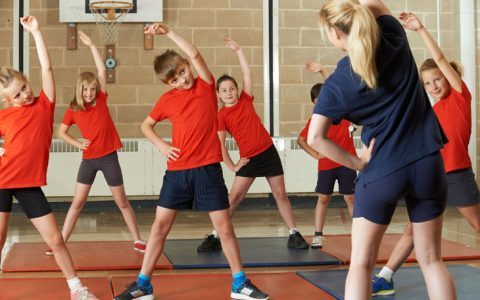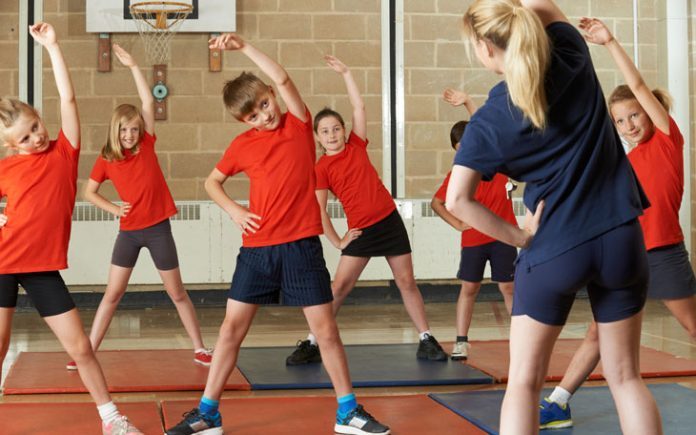
Games play a vital role in children’s development today. They are not only a form of entertainment, but also a learning tool. In this article, we will explore the relationship between games and the development of motor skills.
Defining Motor Skills:
Motor skills are the basis of all physical movements we perform. They can be classified into gross motor skills, which involve large, broad movements, and fine motor skills, which require precision and delicacy.
How Games Affect Motor Skill Development:
Games have a significant impact on the development of motor skills in both children and adults. They can help improve fine and gross motor coordination, balance, precision and speed of movement.
Video games, for example, can improve hand-eye coordination, as players need to quickly move their fingers to press buttons or move the joystick while following images on the screen. This strengthens the connection between the brain and muscles, improving motor response and reaction speed.
Additionally, games that involve sports or physical activities can help develop gross motor coordination. They require large movements, such as jumping, running, throwing or kicking, which contribute to improving muscle strength, agility and balance.
Games can also encourage quick and accurate decision-making, especially in strategy or action games. Players need to analyze information, plan, and execute actions in a short period of time, which develops quick-thinking skills and motor coordination simultaneously.
It is important to note that although games can be beneficial for developing motor skills, it is important to balance the time spent playing them with other physical and social activities. Playing real sports, exercising, and interacting with other people are also essential for healthy and complete motor development.
Types of Games that Help with Motor Development:
There are several types of games that help with motor development. Here are some examples:
Platform games:
Games in which players control a character who has to jump, run, and overcome obstacles in different levels. These games require fine motor skills, balance, and reaction time.
Sports games:
Games that simulate sports such as soccer, basketball, tennis, among others. They require specific movements, such as kicking, throwing, and hitting, which help develop gross motor coordination, precision, and muscle strength.
Dance Games:
Games like Just Dance, for example, where players have to follow the dance moves displayed on the screen. These games are excellent for developing motor coordination, rhythm, agility and balance.
Vehicle Simulation Games:
Games that simulate driving vehicles such as cars, planes or boats. They require steering, acceleration and braking control skills, improving fine motor coordination and precision of movements.
Virtual Reality Games:
These games offer an immersive experience in which players interact with the virtual environment using real body movements. They can involve activities such as archery, boxing, and climbing, which stimulate different aspects of motor coordination and balance.
Physical Puzzle Games:
Games that involve physical puzzles, such as Rubik's cubes, matching games, or three-dimensional jigsaw puzzles. These games require manipulative skills and fine motor coordination to solve the challenges.
Benefits of Games in Motor Development:
Games have a number of benefits for motor development. Here are some of them:
Motor coordination:
Games help improve both fine and gross motor skills. Precise and controlled movements are required to interact with game controls, whether it's pressing buttons, moving the joystick, or using gestures in virtual reality games.
Balance and posture:
Many games involve movements that require proper balance and posture. Dance games, for example, encourage body balance and spatial awareness. Sports games also require postural control to perform movements such as jumping, running, and changing direction.
Muscle strength:
Some games involve physical movements that require muscle strength. Sports games, for example, require the use of muscles to perform actions such as kicking, throwing or lifting virtual objects. Therefore, these movements contribute to muscle development and strengthening.
Reaction speed:
Games that require quick and accurate responses help develop reaction speed. Players need to make quick decisions and execute movements in real time to achieve objectives or avoid obstacles. This encourages agility and physical response speed.
Attention and concentration:
Playing games requires focus, attention and concentration. Players need to pay attention to the details on the screen, follow movements and react accordingly. This helps develop coordination between the senses and motor actions, improving the ability to concentrate and situational awareness.
Cognitive skills:
In addition to motor development, games can also improve cognitive skills such as logical reasoning, problem-solving and decision-making. Furthermore, these skills can be transferred to other areas of daily life, benefiting learning and overall development.
Integrating Games into Everyday Life to Improve Motor Skills:
To integrate games into everyday life, it is essential, first of all, to choose games that are appropriate for the child's age and ability. In addition, playtime should be a regular part of the child's daily routine, thus allowing the child to practice and develop their motor skills consistently.
Games are also an essential tool for developing children’s motor skills. By providing a fun and engaging way to practice these skills, they can help children develop the coordination, strength and dexterity needed for a healthy and active life.
